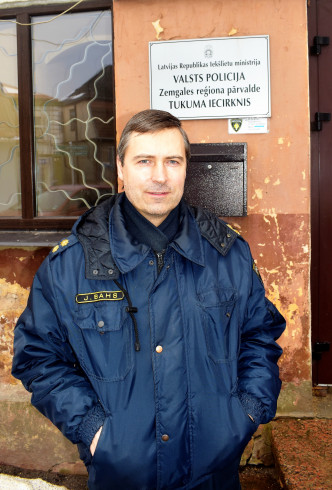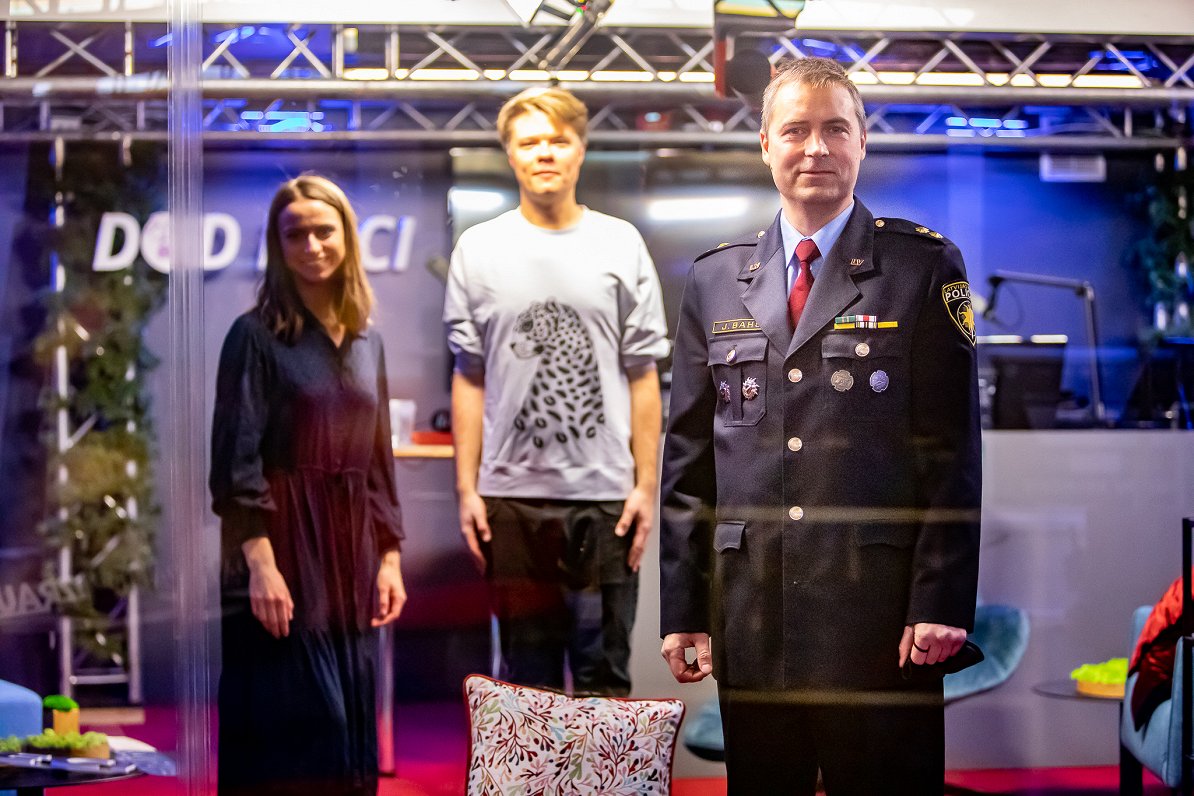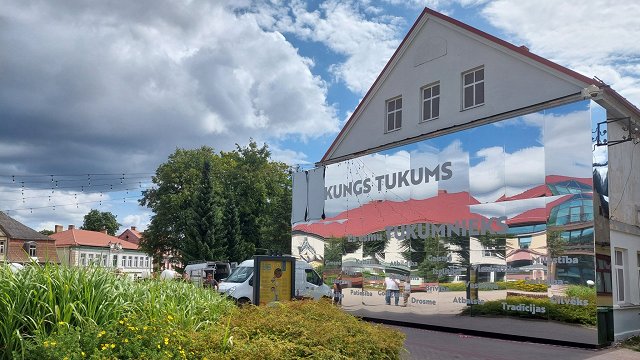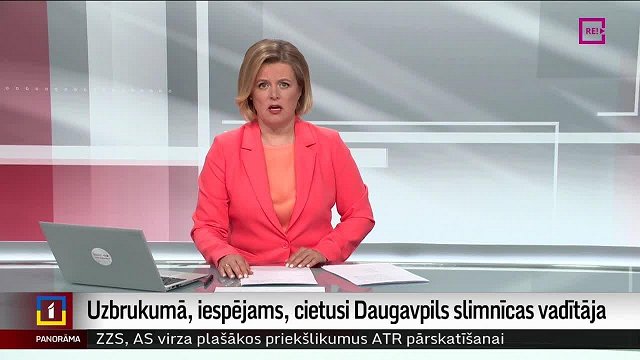The “good cop/ bad cop” routine is a staple of many police dramas, a form of psychological role play meant to elicit confessions from suspects. But at least one Latvian officer seems like a decent and fair guy without needing to put on an act.
Soft-spoken, friendly Lieutenant Colonel Janeks Bahs of the Latvian State Police is in charge of Tukums Police District, 50 kilometres west of Riga. After two decades in uniform, he is still clearly driven by idealism.
“I always tell my staff – we are working for the children who live here,” he says. “I have two young sons and I want them and all the members of the community to feel safe in their home, their town and their district. “
The thin blue line
Now 44, Janeks knew from an early age what he wanted to do when he grew up. In 1991, he admiringly watched policemen from his hometown Tukums rush to Riga to man the barricades against Soviet hardliners. Aptitude tests in high school suggested he should enter the army or the police, and he studied for five years in the Police Academy.

His first job on graduation was as a youth officer. Cooperating with social services and the family court, over a decade his unit was able to significantly reduce the number of potential offenders in Tukums by focussing on their medical, behavioural or addiction problems before they got into serious trouble.
Employing conflict resolution skills he learned during a six-month sabbatical in Canada, Janeks is a staunch advocate of preventative policing.
“No one is born a criminal, so you have to work with the root causes,” he says. “If someone has anger management problems, locking them in a cell isn’t going to help – they need support so they can change.”
His beat covers about 2,500 square kilometres of small towns, countryside and seaside villages in Tukums, Jaunpils, Engue and Kandava districts. He commands around 90 uniformed officers and some civilian support staff, who deal with every aspect of policing, from major crimes to issuing gun permits.
Policing the pandemic
As in many other countries, the Covid-19 emergency has greatly expanded police activities in Latvia. After relatively mild rules in spring 2020 and an unrestricted summer, in November the country entered a state of emergency, which has been extended until April 6 of this year. Sports and cultural facilities, many shops and restaurants are shut. Face masks are mandatory in all indoor spaces. All public gatherings, including protests, have been banned, extending even to people from more than one household being in the same car.
And a weekend curfew was imposed from New Years Eve until early February, the largest policing operation since the restoration of independence. According to Janeks, enforcing the curfew had the bonus of netting drunk drivers and outstanding arrest warrants. And concerns that the policy was hindering crime fighting were exaggerated, as the operation got additional funding; officers still reported for shifts on Monday, even if they were tired from all night on the road.
Some resources have been shifted from traffic duties to monitoring compliance by stores. Over a million euros in fines have been issued nationwide for various breaches of emergency rules, but Janeks says his officers have the discretion to issue cautions before they throw the book at you.
“There’s a big difference between someone’s mask slipping off their nose and driving drunk at 2 am during a curfew,” he says.
Opinion polls reveal that Latvia’s current government is unsurprisingly unpopular for imposing what some people see as arbitrary and illogical restrictions. But Janeks and his team are just doing their job.
“We live in the same community as everyone else, and each of our staff has their personal views,” he says. “But we don’t decide on what restrictions there are. That’s up to the professionals in the government, and it’s our duty to implement them.”
“Over the last decade, criminals have shifted from stealing handbags in the street to fraud and credit card data theft,” says Janeks. “But during the 2009 recession, there was a correlation between crime and the economy. We’re not seeing that at present, but perhaps the economic consequences have yet to be felt. “
Only human
Janeks says there hasn’t been an increase in public hostility toward the police during the state of emergency. While there were some incidents when mandatory face mask wearing was first introduced, he believes people have come to accept it as normal.
The pandemic has affected officers’ lives too, with regular Covid testing and masks on the job now routine. After hours, Janeks used to relax by folk dancing, but that pleasure has been replaced by a routine of work and home-schooling his kids, something parents across Latvia are all too familiar with.
Like everyone, he longs to be able to socialise and have fun again.
“After all, we humans are social creatures, or so they say,” he reflects.
This feature was originally published on the website of the Latvian Institute and is reproduced here with permission.































